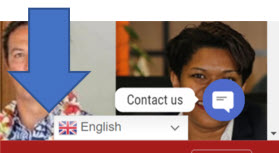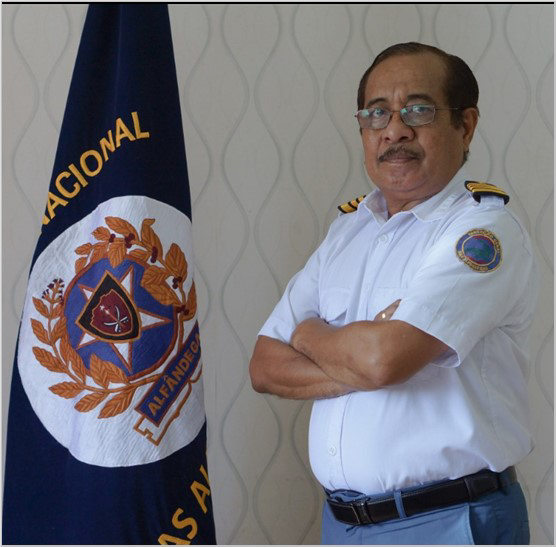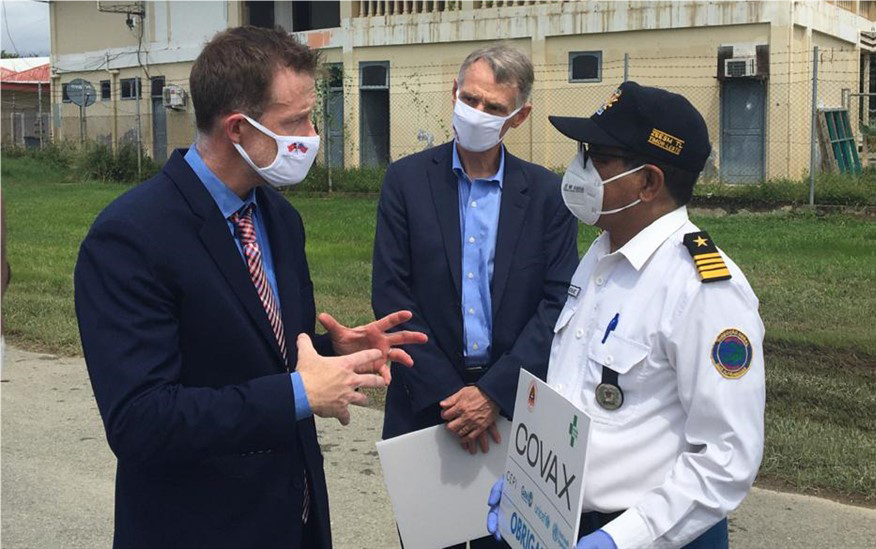
Read this document in French:
Click on the language tab found at the bottom right of your screen and select French.

Suva, Fiji, September 22, 2022. Timor Leste Commissioner of Customs, Jose Antonio Fatima Abilio is one of the most experienced civil servants in the country having served for over 35 years. A father to five sons and a daughter, Mr. Abillio has held several roles including Vice Director of Planning and Coordinator of Assistance under the First Constitutional Government, Chief of Staff of the Office of the Minister of Finance, Director of Aid Effectiveness and in 2014 he was appointed as Director General or Commissioner for the Customs Authority.
Mr Abillio shares his experience as head of Customs in one of the youngest countries in the world.
What is the best part of your job?
There are great challenges, but it has also been a great learning experience coordinating with other law enforcement agencies, something which was not done before. I also enjoy the interaction with the traders, private sector and other stakeholders.
It’s only been 24 years since the Timor Leste Customs Authority was established, so what is your vision for the organisation?
Our vision is to increase and sustain the economic prosperity of the country, businesses and the people of the Timor Leste by performing Custom activities.
We had the COVID 19 pandemic, what are some of the challenges or the key challenges that your Customs Authority faces that may hinder you achieving that vision?
COVID-19 while challenging, gave us a new experience to face a pandemic. It was important that the Customs Authority continued operation and provide services for import and export, including the facilitation of trade. We were faced with great risks, and we also did not have experience on how to face a pandemic such as COVID-19.
We also had less equipment to cope with the challenges brought on by the COVID-19 pandemic. There are also other critical challenges faced by Timor Leste Customs such as in human resources with the limited technical knowledge in Customs. Like other Pacific Islands, we also have the limited financial resources to meet the growing needs of the Custom Authority. And we also cover a large area of land and maritime that makes it difficult to reduce illegal activities due to lack of the facilities, human resources and financial resources as well.

What are some of the key achievements of Timor Leste Customs Administration?
Since I started working here in 2014, we simplified the Custom codes and consolidated six laws into one to be in compliant with the World Customs Organisation (WCO), World Trade Organisation (WTO) and Association of South East Asian Nations (ASEAN) requirements.
To ensure transparency, the Customs Code and associated legislation, import and export procedures are available on the Customs website in Portuguese and English.
We have developed more than 30 Standard Operating Procedures (SOP) to guide our work and improve our service to the community. These procedures, regulations, policies are on electronic manifest, fully automated import and export clearances, WCO Risk management standards, licensing of private warehouses and temporary storage places, post clearance desk audits, management of prohibited and restricted goods, including the payment of duties and taxes for goods carried by passengers with Visa, Debit, or Credit card. We are also implementing the ASYCUDA WORLD system. We have modernized processes such as the single window system involving more than 13 other government agencies. Seven of them are live and the other six are in progress and we hope that by the end this year, they will be live as well.
We have also launched our trade portal. Further, we have the Customs hotline to help our authority address complaints and to also get information from the community.
We are also in the process of accessing to the Revised Kyoto Convention General Annex, WTO and ASEAN.
What would have been your ideal job? Have you always wanted to be a Customs officer?
Well if I’m not the head of Customs, I prefer to go back to my previous work in planning and administration because that’s my “background” and we face less challenges there. In Customs, we work with other law enforcement agencies and sometimes we must prosecute people, I don’t enjoy doing that.
ENDS
For more information, queries, or interview requests, please email MediaOCO@ocosec.org
About OCO: OCO is a grouping of 23 customs administrations in the Pacific region. It facilitates regional cooperation, information sharing and capacity building of its members with the overall target of supporting economic growth and improved border security in the Pacific.